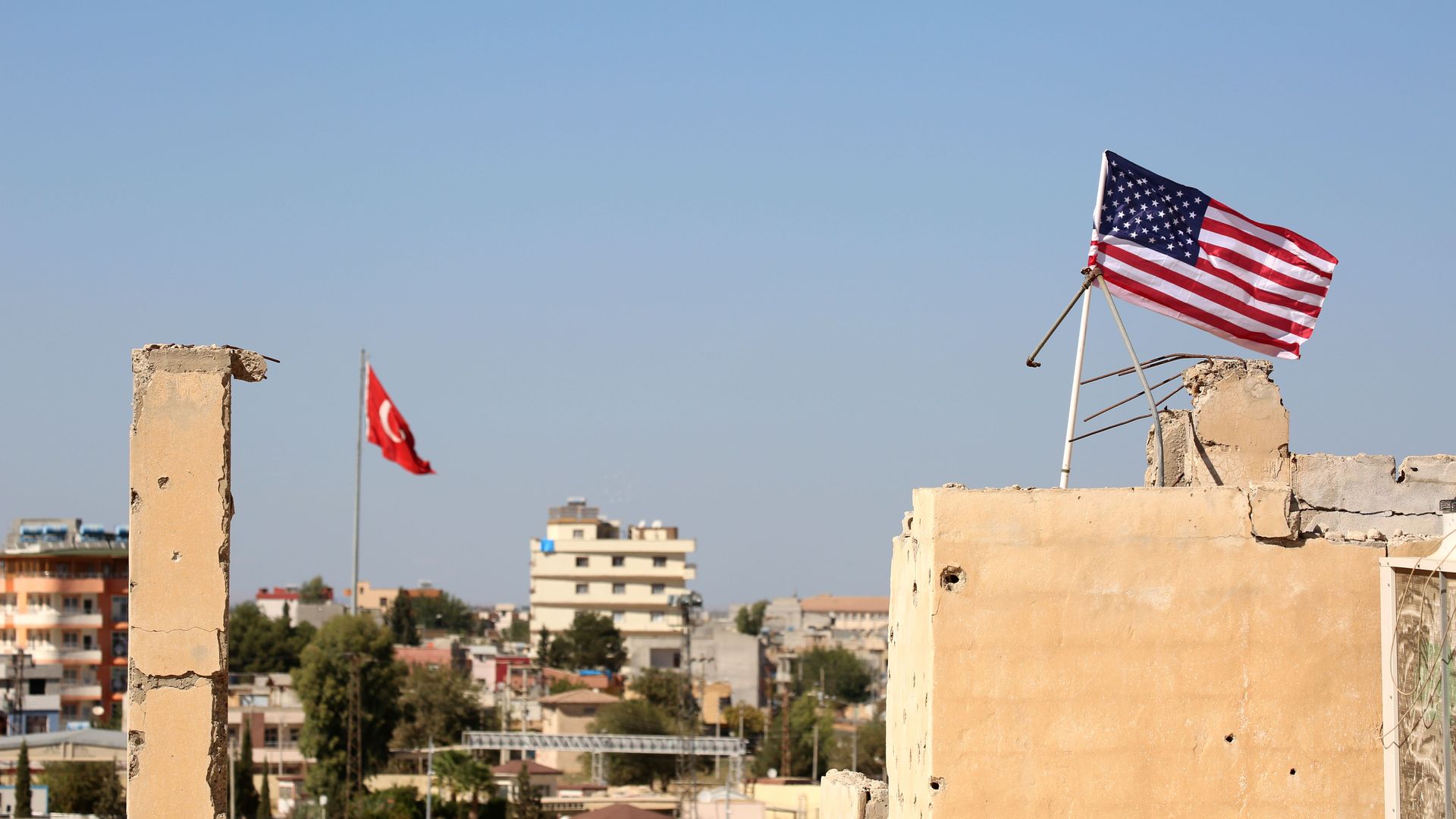Updated Apr 25, 2018 - World
Expert VoicesAfter strikes, U.S. commitment to Syria remains muddled
Add Axios as your preferred source to
see more of our stories on Google.

An American flag above a building used by the Kurdish police Tal Abyad, Syria, in 2016. Photo: Delil Souleiman/AFT via Getty Images
